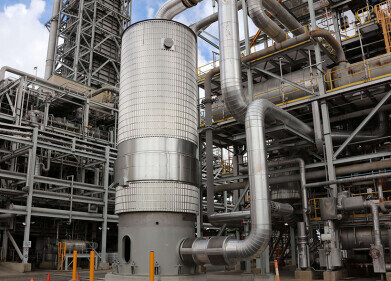Air Clean Up
Why Is Decarbonisation Important?
Apr 14 2022
Decarbonisation is the term given to the reduction of greenhouse gas emissions into the atmosphere. The biggest contributor to this issue is carbon dioxide, or CO2, hence why the term contains the word carbon within it. However, it refers to the reduction of other damaging gases such as methane (CH4), nitrous oxide (N2O) and ozone (O3), as well.
Although decarbonisation is most commonly and closely associated with the energy generation and transportation industries, it can be applied to businesses operating in all sectors and spheres. Means of achieving decarbonisation include transitioning to renewable energy sources, switching to electric vehicles (EVs) instead of ones fuelled by petrol or diesel and installing carbon capture and storage (CCS) equipment at the point of emission. But why, exactly is it so important? Here are a handful of reasons why decarbonisation should comprise a priority for any business owner in the imminent future.
Environmental responsibility
The biggest issue which decarbonisation aims to alleviate is the global warming and climate change caused by increased concentrations of greenhouse gases in our atmosphere. Because these gases are capable of trapping the heat from the sun’s rays, they can elevate ambient temperatures on a local and global scale. This, in turn, can negatively impact all sorts of things, from oceanic acidity to rising sea levels to the frequency and intensity of extreme weather events.
As such, it’s imperative that we all work together to reduce the amount of carbon and carbon equivalent which is being pumped into the environment. This applies to individual businesses and private citizens, but for the most tangible impacts to be realised, it must come from top-down legislation. Which brings us onto our second point…
Legal obligations
After the nations of the world converged on Paris in December 2015 for COP21, they signed an agreement to limit global warming to a maximum of 2°C and earmarked a rise of 1.5°C as a more preferable target. With that in mind, governments around the globe have been introducing legislation and implementing measures geared towards achieving that objective.
The UK, for example, became the first major economy to pass into law a binding piece of legislation which obliged all companies to become carbon neutral by 2050. In order to ensure that they do not fall afoul of the regulations in the future, it’s incumbent on business owners to begin addressing the situation now.
Economic advantage
One of the main reasons why CEOs are reluctant to pursue policies of decarbonisation at the present time is the upfront expenses involved in doing so. Transitioning from fossil fuels to renewables represents upheaval; switching from petrol and diesel cars to EVs and other forms of sustainable transportation costs money and installing sophisticated CCS technology does not come cheap.
But while these concerns may be valid, they are quite short-sighted in their approach. That’s because the long-term benefits of futureproofing a business by decarbonising it now will pay off many times over in the long run. What’s more, the advantages will also be felt on a societal, national and even global scale, since the air pollution caused by carbon emissions causes myriad health problems, which costs the global economy trillions of pounds each year. Therefore, decarbonisation makes not just good environmental sense, but economic sense, too.
Events
IWA World Water Congress & Exhibition
Aug 11 2024 Toronto, Canada
Aug 25 2024 Stockholm, Sweden and online
Sep 03 2024 Mexico City, Mexico
Sep 03 2024 Mexico City, Mexico
Sep 03 2024 San Diego, CA, USA














